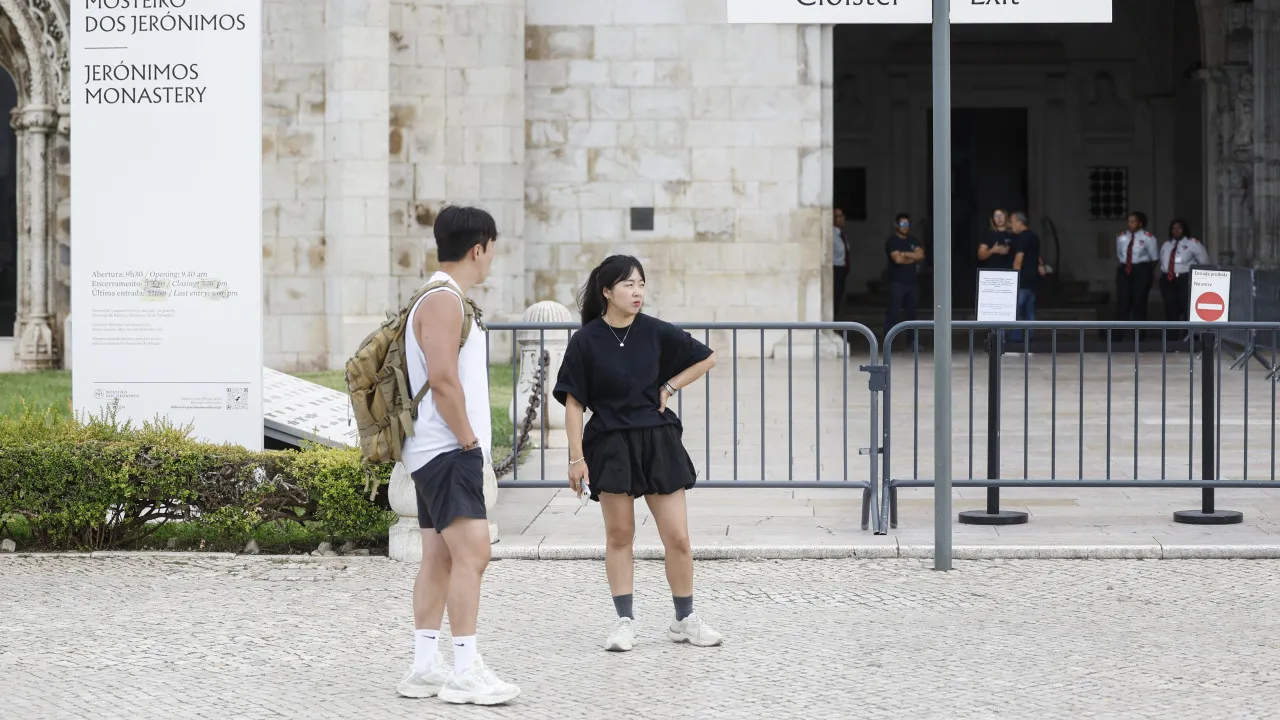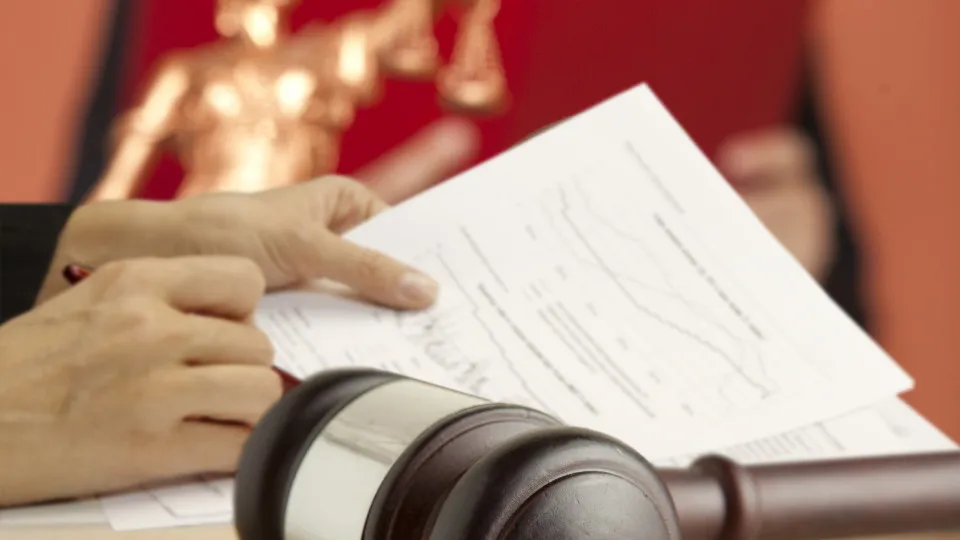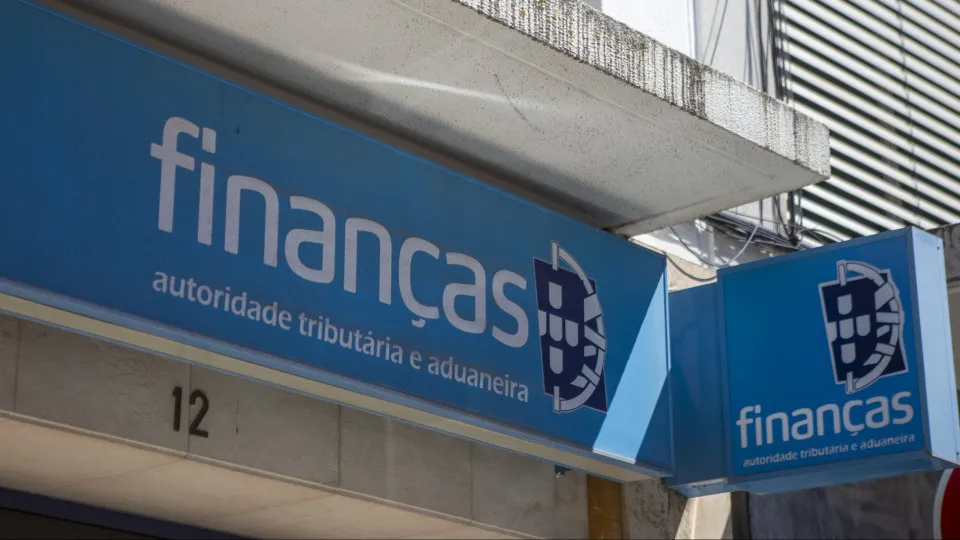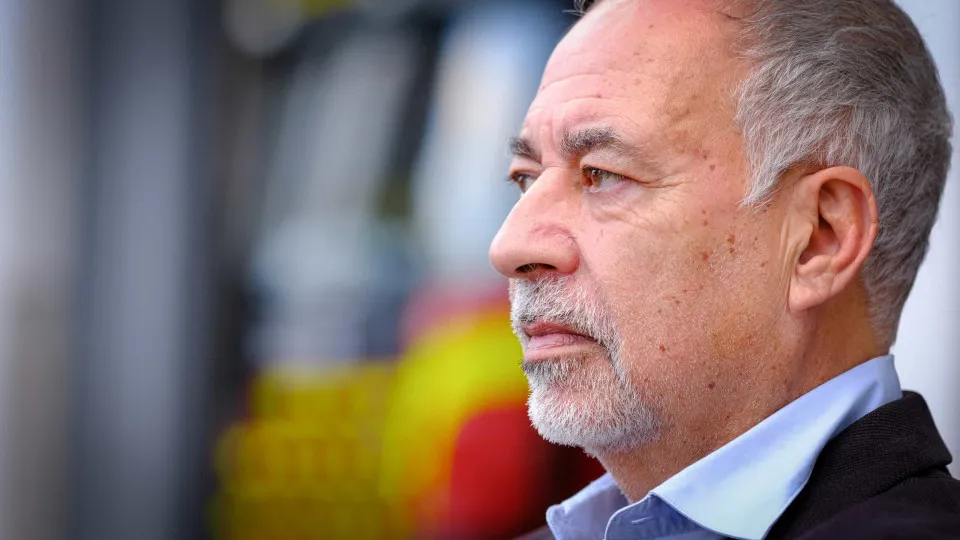
The security and reception workers at 38 museums and monuments in Portugal commenced a strike today, continuing the holiday strike actions organized throughout the year by the National Federation of Public and Social Function Workers’ Unions (FNSTFPS).
A picket line was set up in front of the Jerónimos Monastery, handing out informational flyers to the sporadic tourists seeking details about the monument’s closure.
Catarina Simão, a union leader, noted today’s situation was different compared to previous strikes, where dozens of tourists were gathered outside closed buildings, expressing their frustration and forming queues that extended to the Planetarium’s entrance.
Today, the sole queue observed was at the entrance of the Church of the Jerónimos Monastery, which remained open to visitors.
Catarina Simão told Lusa news agency that the calmer situation was attributed to informative signs about the strike placed ahead of time, preventing tourists from being caught off-guard.
“Today is exceptionally calm,” she stated, contrasting with previous strikes that saw “complicated situations with much conflict,” believing the informative signs helped deter potential queuers at this time.
Simão highlighted the workers’ protests began over a year ago, in April of last year.
“With the dissolution of the Directorate-General for Cultural Heritage and the establishment of a public enterprise entity, workers saw changes in holiday pay. They are striking on national holidays to demand fair payment for their work,” she explained.
The union leader pointed out that some workers earn slightly over 20 euros—22 euros—while a technical assistant’s salary is under a thousand euros, and holiday pay does not even reach 50% of a regular workday’s pay.
The issue affects fewer than 400 workers, with the associated costs amounting to approximately 200,000 euros annually, concerning eight national holidays on which museums typically open, she added.
The strike involves only security and reception staff, as other technical assistants in museum administration take holidays off.
“We will continue until the government presents a viable offer that workers are willing to accept,” Simão affirmed, while remaining “very hopeful” about the “openness” expressed by the new government.
“The Minister of Culture, Margarida Balseiro Lopes, informed us during our meeting on July 15th of some ideas. She couldn’t yet share them with the unions but intended to discuss with the executive and then present the proposal,” she stated.
According to FNSTFPS data, today, significant sites in the Greater Lisbon area, including the Jerónimos Monastery, the Coaches Museum, the National Museum of Ancient Art, the Theatre Museum, the National Tile Museum, the Anastácio Gonçalves House-Museum, and the Mafra Palace, are closed.
The National Museum of Popular Art opened, while the Royal Riding Hall is open under restrictions.
In the south, the Fortress of Sagres and the National Museum Frei Manuel do Cenáculo (Évora) remain closed. In the Central region, the Convent of Christ (Tomar), the Alcobaça Museum, and the National Museum of Conímbriga (in Condeixa-a-Velha) are not open to the public, while the National Museum Grão Vasco (Viseu) is open with restrictions.
In the North, the Alberto Sampaio Museum, the Ducal Palace of Bragança, and the Guimarães Castle are also closed, as Simão reported, adding that it is unclear whether the Dom Diogo de Sousa Museum (Braga) is open due to communication difficulties caused by nearby fires.
The Belém Tower, the National Archaeology Museum, and the National Dance Museum are excluded from these considerations as they are closed for renovations under the Recovery and Resilience Plan (PRR).
Simão recalled the next national holiday falls on October 5th, warning that without resolution by then, museums and national monuments will again close their doors.




